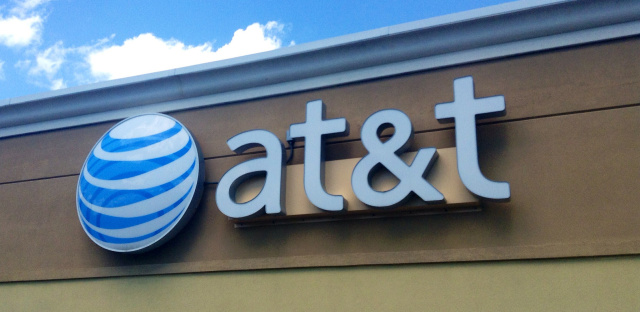
"I have no illusions that any of this will change what happens on February 26," when the FCC is expected to vote, AT&T Federal Regulatory VP Hank Hultquist wrote in a blog post yesterday. "But when the FCC has to defend reclassification before an appellate court, it will have to grapple with these and other arguments. Those who oppose efforts at compromise because they assume Title II rests on bullet proof legal theories are only deceiving themselves."
Hultquist's blog post summarized arguments AT&T made in two new filings with the commission. "Given that this decision seems driven by political considerations, I hold out little hope that the FCC will alter its course, but the letters nonetheless try to set out what we see as significant infirmities with reclassification," Hultquist wrote.
The first of AT&T's two filings concerns whether Internet service providers are information service providers, telecommunications service providers, or both. They are currently treated as lightly regulated information service providers, but they would be reclassified as telecommunications providers under the FCC's expected action. This would let the FCC regulate fixed and mobile broadband with the same "Title II" statute it uses to regulate the traditional telephone network, but the FCC could pick and choose which exact rules to apply. Specifically, the FCC would impose bans on throttling or blocking traffic and paid prioritization deals in which a Web service pays for priority access.
AT&T argues that the capabilities ISPs would use to throttle, block, or prioritize traffic must be classified as information services because of the way information services are defined under the law. "[T]he capabilities that allow prioritization... involve the use of an ISP’s 'computing functionality' to provide 'the capability of getting, processing, and manipulating information,'" AT&T General Attorney Christopher Heimann wrote in the filing. Thus, they can't be part of a transmission component that would be "understood as a separate telecommunications service subject to Title II."
"[T]he plain meaning of the statutory definition mandates the result that any offering including ISP functionalities—and thus, as discussed above, any offering that includes the ability to prioritize or block content—necessarily is an information service," Heimann wrote.
AT&T's second filing contains a procedural argument, accusing the FCC of making a decision without doing a required analysis. "Under longstanding precedent, the FCC must make particularized findings with respect to the offerings of individual carriers in order for it to find that either they are operating as common carriers, or should be required to operate as common carriers," Hultquist wrote. He continued:
The FCC has not engaged in the kind of detailed analysis that would be needed to assess the offerings of every ISP that would be subject to its rules.The FCC in 2010 passed net neutrality rules using its powers to regulate information service providers. Verizon sued and won, with the court ruling that the FCC had imposed per se common carrier restrictions without first reclassifying broadband as a common carrier service. That's what led the FCC to consider using its stronger regulatory powers.
In order for the FCC to find that an ISP is operating as a common carrier, it would have to examine the terms on which that ISP holds itself out to customers to assess whether it offers to serve indifferently, or whether it retains the ability to decline to serve customers. The underlying record in this proceeding simply does not contain the level of detail needed for the FCC to determine that any ISP, let alone every ISP, holds itself out to serve customers indifferently. And in some markets, such as for peering and interconnection, the record is in fact quite clear that ISPs do not operate as common carriers, and expressly retain the right to refuse to provide service. These services are unique carrier-to-carrier arrangements commercially negotiated in a robustly competitive market and it would strain all logic to find that they instead are offered indiscriminately to the public for a fee, the core requirement of common carriage.
The FCC cannot mandate that a service be offered on a common carrier basis without, at a minimum, a finding that a particular provider has market power in a particular geographic market. Needless to say the FCC has engaged in no analysis of market power on a geographic market basis. Accordingly, this option is simply not available to the FCC.
FCC Chairman Tom Wheeler says he expects a lawsuit no matter what the FCC does and that the commission will write its rules so that they can survive a court decision. He is expected to reveal more details on his plan Thursday.
Verizon has also warned the FCC that it will face lawsuits over reclassifying broadband providers.
AT&T and Verizon each face common carrier rules for telephone service, including cellular voice. But the companies are not (yet) treated as common carriers for Internet service on either fixed or mobile networks.
No comments:
Post a Comment